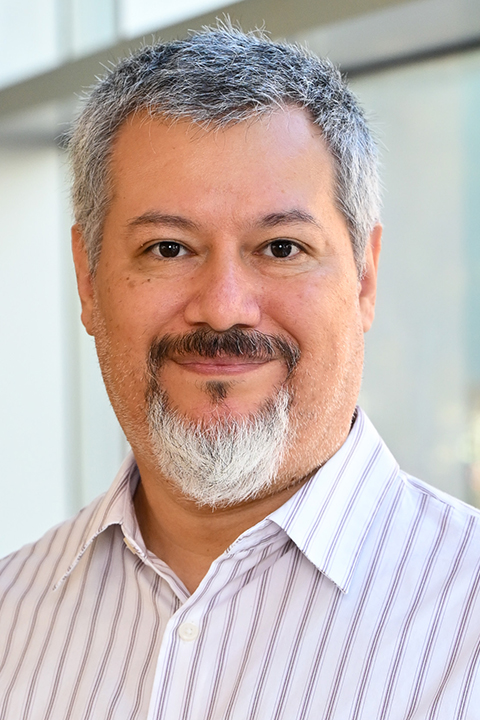Cultural Anthropology
This document outlines the Libraries’ general policy on collections for the Department of Anthropology, specifically sociocultural anthropology. (Collection development policies for archaeology and biological and physical anthropology are in separate policies.) This document is not intended to be a rigid set of rules; collection suggestions from students and faculty are welcome.
Franz Boas founded Columbia University's Department of Anthropology in 1896, making it the first PhD program in the United States. The department was committed to the idea of the uniqueness of each culture and to the observation and recording of those cultures “in the field,” in all aspects and as much detail as possible. Anthropology collections typically include the “four field approach” (cultural anthropology, physical and biological anthropology, archaeology, and linguistics) to the study of human culture and society, The cultural anthropology collection supports research and work in ethnographic research, critical theoretical approaches to contemporary global problems, and language-sensitive and historically-informed analysis.
The collection actively supports the scholarly pursuits of students and faculty in the Department of Sociocultural Anthropology. Areas of established specialization are colonialism, gender, language, nationalism, performance, post-colonialism, questions of representation, and theories of history. The collections also support research interests in contemporary anthropology, political anthropology, ecology and ecocriticism, science and technology studies, critical native studies, aesthetics, affect theory, and media including film, photography, sound recording, and new media.
a. Undergraduate
Columbia offers an undergraduate degree in anthropology. The library also supports undergraduate students from Barnard College (BC) in their research.
b. Graduate
There is a PhD program in sociocultural anthropology and two MA degrees offered in anthropology and museum studies.
c. Institutes, Interdisciplinary Programs, Etc.
The Institute for Research on Women, Gender, and Sexuality is an interdisciplinary center that has been directed by anthropology faculty in the past. The Institute for Research on Women, Gender, and Sexuality supports undergraduate and graduate student research.
The Middle Eastern, South Asian, and African Studies Program studies the culture, history, and politics of the geographical places titled. There is a MA degree and PhD degree offered. Additionally, undergraduate students can take advantage of majoring in this subject which involves language classes in Swahili and other African languages, in Arabic and other Middle Eastern languages, and in Hindi/Urdu and other South Asian languages.
The Center for the Study of Ethnicity and Race (CSER) studies culture, power, hierarchy, social identities, and political communities. The center offers an undergraduate program in conjunction with Barnard College’s Interdisciplinary Concentration on Race and Ethnicity students to organize their studies through various tracks, including Asian American studies, Latino studies, Native American/Indigenous studies, comparative ethnic studies, and individualized study.
The Center for Archaeology fosters connections between students and scholars interested in archaeology, materiality, and museum studies.
The South Asia Institute coordinates activities at Columbia University that relate to study of the countries of Afghanistan, Bangladesh, India, the Maldives, Nepal, Pakistan, and Sri Lanka. The institute organizes conferences, seminars, exhibits, films, lecture series, and brown bag talks that bring together faculty and undergraduate and graduate students with diverse interests and backgrounds.The MA Program in South Asia Studies, administered by the institute, combines a core curriculum on South Asia with a coherent set of courses from a variety of disciplines across the university.
The Center for Comparative Literature and Society opens up the study of literature to languages beyond canonical European languages. The institute is both a full-fledged curricular and degree-granting unit and a major research hub for Columbia University and its global programs.
The Center for the Study of Social Difference has two research concentrations: Women Creating Change and Imagining Justice.
The Middle East Institute offers an interdisciplinary MA program in Islamic studies. Working to inform and educate the media, government, and the general public about the Middle East, the institute also collaborates with other regional institutes and units of the University to advance knowledge about issues and processes that now transcend one region.
The Center for Palestine Studies (CPS) is led by Dr. Nadia Abu El-Haj of the anthropology department, but is supported by many faculty from the department. The center supports the Al Quds Archive, the preservation of Palestinian film, and the Edward Said Archive.
d. Course Reserves
Selection for course reserves is up to individual faculty members. The Librarian will do whatever is possible to secure specific materials absent from the collection.
a. Print
Print materials collected extensively include monographs, periodicals (including annuals), scholarly series, and reference tools. Print materials that are frequently used or are course reserves are kept in Lehman Social Sciences Library. Lesser-used materials are held in the Libraries’ off-site storage facility (ReCAP).
b. Digital Collections
The Columbia University Libraries offers a robust variety of electronic resources. The cultural anthropology collection strives to offer the full array of available databases relevant to the field.
E-books are collected extensively. These may be purchased outright or may be part of subscription services as appropriate, based on availability. Electronic items with reduced barriers to access are preferred, such as DRM-free e-books or multi-user licenses.
c. Media
Audiovisual materials and electronic tools are collected selectively, but may be present as part of broader electronic collections or purchased upon specific request.
d. Languages Collected
We collect English-language materials extensively, Western European languages very selectively, and non-Western languages are collected rarely. Through our Global Studies collections, non-English-language material is collected more comprehensively, which may include materials of interest to ethnographic researchers.
e. Chronological Focus
We collect materials focusing on current research topics and 20th-century topics extensively and 19th-century topics selectively.
f. Geographical Focus
We collect United States imprints extensively and materials published in Great Britain, Western Europe, Canada, and Latin America selectively. Through our Global Studies and East Asian collections, non-English language material are collected more comprehensively, which may include materials of interest to ethnographic researchers.
g. Imprint Dates Collected
The main focus of collecting is current and recent (+/- three years) imprints. When antiquarian acquisitions are offered via gift or purchase, no specific chronological ranges are established in advance; rare or unique materials from any period may be considered.
The Rare Book & Manuscript Library (RBML) protects correspondence, financial reports, budgets, newspaper clippings, contracts, personnel records, flyers, supply orders and receipts, and other material document the operations of the Department of Anthropology. In addition to departmental records, RBML also holds the papers of important social science organizations, including the Council for Research in the Social Sciences, Council for Research in the Humanities, and the Encyclopedia of Social Sciences--all of which contain significant material related to anthropology. Perhaps the most significant manuscripts in RBML related to cultural anthropology are a series of original ethnographies and research notes on the culture and mythologies of the Kwakiutl peoples of the Pacific Northwest, which were compiled by George Hunt for Franz Boas in the late 19th and early 20th centuries.
Columbia University Libraries have one of the oldest and largest South Asia collections in the country, with some 500,000 volumes--over 150,000 of which are in South Asian languages. Columbia hosts the digital library website, South Asia Resource Access on the Internet (SARAI), which serves as the official South Asia catalog for the WWW Virtual Library Association, the oldest extant web catalog and one of the most respected.
a. Consortia and Collaborative Collecting with Other Institutions
The range of print materials focusing on the fields of Anthropology are greatly enhanced by Columbia’s participation in Borrow Direct, OCLC’s SHARES network of international academic libraries, and the Manhattan Research Library Initiative (MaRLI), a partnership with New York University and The New York Public Library. MaRLI also enables Columbia to expand its electronic access to electronic journals and books through cooperative subscription and purchase agreements.
b. Location Decisions and Selection for ReCAP
Lesser-used physical items will primarily be sent to the Libraries’ share off-site storage facility (ReCAP). Duplication of titles is limited to works identified by faculty as being central to a specific course. In these cases, no more than a few copies are obtained, one of which should be placed by the faculty member on reserve.
Deduplication only takes place when a title has been identified for relocation to ReCAP and a copy already exists on shelf at that facility. Even in this instance, the Librarian will inspect the copy that could potentially be withdrawn for any unique features or unusual provenance before assenting to deduplication.
c. Deaccessioning
Titles are generally deaccessioned only in cases where the physical copy is disintegrating and no longer serviceable in print/physical format. In these instances, the Librarian will evaluate whether to make a preservation photocopy, to create or acquire a digital surrogate, and/or to replace the physical copy with another. Resources on obsolete formats are reviewed by librarians on a case-by-case basis; in instances where the original format has artifactual value, it will be retained even after it has been digitized or otherwise reformatted. Books located in the Rare Book & Manuscript Library, C. V. Starr East Asian Library, Avery Architectural & Fine Arts Library, and the Burke Library at Union Theological Seminary are not deaccessioned.
d. Digitization and Preservation
Materials may be treated for preservation issues as needed.

John L. Tofanelli
British and American History and Literature Librarian
- Humanities & History

Jeremiah Trinidad-Christensen
Head, Research Data Services
- Digital Scholarship